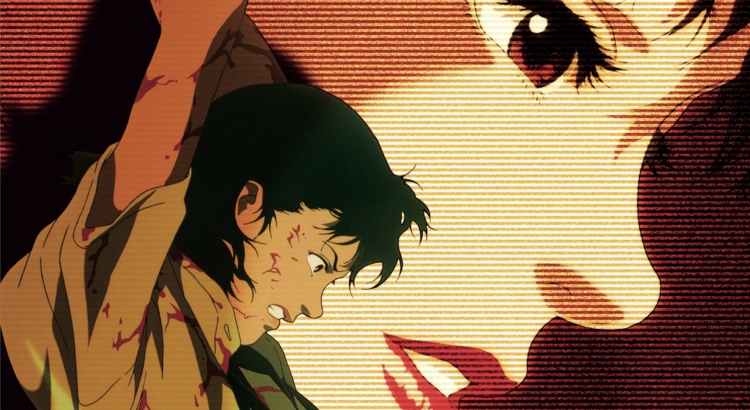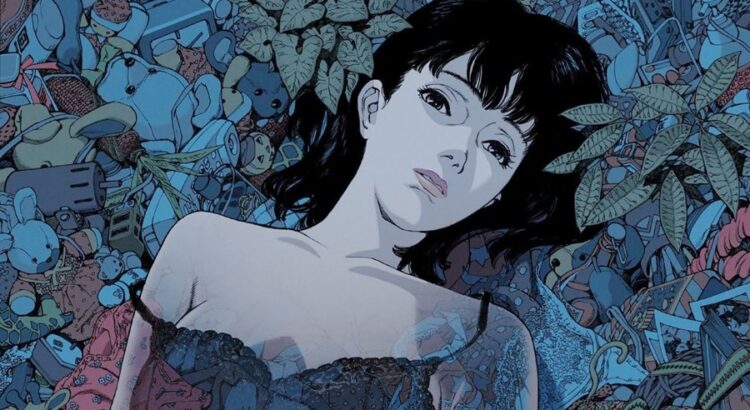Content Warning: mentions of rape and sexual assault
Perfect Blue is an anime that follows Mima, a young woman who leaves her pop trio to launch her acting career. As Mima is forced to shed her “good girl” image through disturbing scripts and marketing moves, she is increasingly harassed by fans, and ultimately begins to lose her grip on reality. The film explores these themes of the unreasonable expectations of fame, stalking and parasocial relationships, and the exploitation of young breakthrough actresses through the lens of an unreliable narrator.
As the film progresses, the narrative becomes less and less clear; timelines are muddied, certain scenes are repeated back to back with slight but key differences, and once hallucinations interrupt the film’s established unreality, nothing can be taken as fact. There could be very long pieces written that theorize what truly happens in the film versus what Mima hallucinates, but I believe the point of the film is to show the extreme to which Mima is pushed by showrunners, her management agency, and the public. The film utilizes its nonlinear sequence of events effectively to highlight the twisted nature of the entertainment industry, the horrors new actresses are put through in order to be taken seriously, and how Mima’s own agency and identity spiral out of her control.
That being said, the graphic nature of the film must be called into question. For context, Mima’s managers begin to question if her becoming an actress was worth leaving her music career as she is only booking small roles with very short lines. Then, one day, she is presented with a huge breakout moment that will surely get her recognition for her acting abilities – via a rape scene. Mima accepts the role, but the staging of the scene is so upsetting that even characters in the film comment on its nature. They are not allowed to film in an actual club “due to what they’re shooting,” and it is later suggested that the filming of the scene was so traumatic that Mima feels as if the event actually happened to her. Of course, this is a perfect example of how many new actresses are treated, and it is clear what kind of toll this can take on someone forced to perform such a scene.
However, what is questionable is the execution of this criticism. The rape scene is very long and Mima’s distress is very visible and very audible – it is very, very disturbing and overwhelming. And when the scene is compared to the way violence is handled in the film – a serial killer’s kills are primarily offscreen, though gore and fight sequences are shown – the rape scene feels extreme. There is almost an obsession in media with building suspense by hiding and revealing what happens rather than showing the effects of trauma, and building character. And in Perfect Blue, it is clear the focus was meant to showcase Mima’s deteriorating mental state and need of support, but there are ways to handle such subjects with more care – perhaps the way Never Sometimes Rarely Always suggests what may have happened to its protagonist but focuses on her denial into the beginning of her healing process, and the near impossibility of her ability to receive proper care. Even Last Night In Soho – which I thought lacked a certain depth needed to say something beyond “men can be bad” – shows the before and after, the glamor and idealization of fame that leads to a change in character and behavior, but it never shows an event in such graphic detail that Perfect Blue does. Even one of the most recent episodes of House of the Dragon shows a huge improvement in the treatment of such topics from the original Game of Thrones series to the current series – a rape is not shown, the word is never said aloud. All that we see is sympathy for the victim, but the bleak reality that she must keep the event to herself as she is of a lesser status than the perpetrator and is therefore subject to more scrutiny, and a mother and victim’s disappointment in her own son and perpetrator.
My criticism of the film is not that the film should have had a happy ending for Mina or that it should have sugar coated the horrors of what happens to her and many actresses, but that in order to take a stance criticizing the treatment of newcomers to the entertainment industry, a piece of media does not have to treat its characters the same way. To handle such topics more gently and with the understanding that an audience can imply what has happened shows more expertise in portraying this subject on screen. Trauma is not needed to establish backstory, especially at the expense of character development, not does it need to be explicitly spelled out in order to be effective.



